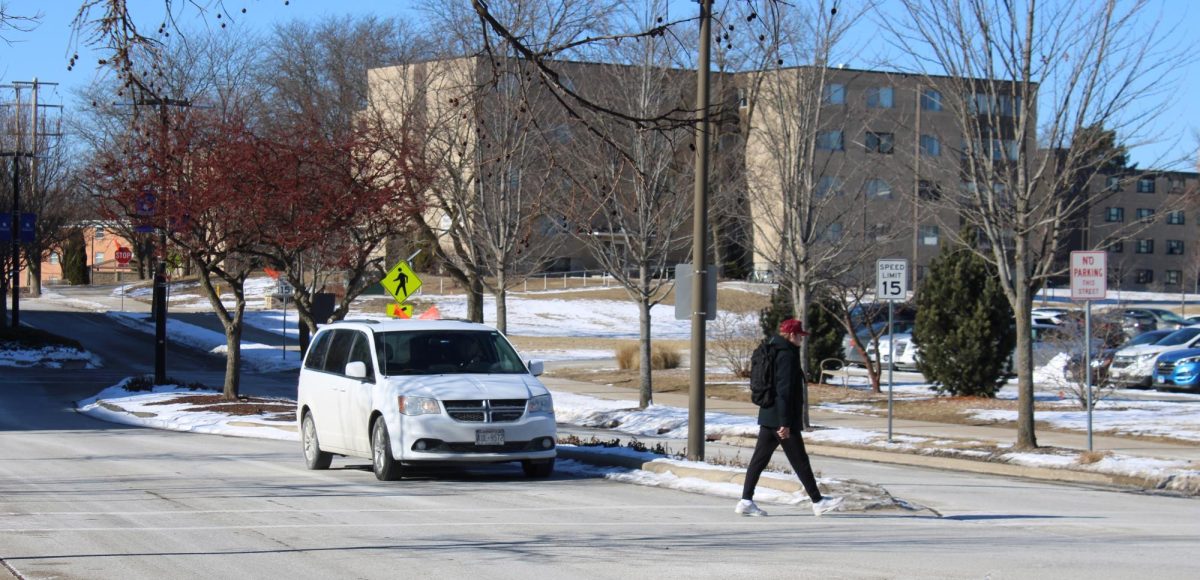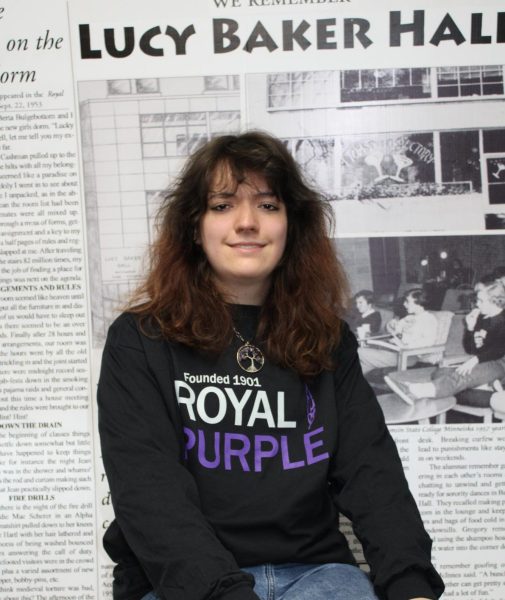Most members of the UW-Whitewater community have walked, cycled or driven on Starin Road. The road, bisecting the center of campus, is bustling with activity during the school year. However, this has caused some dangerous situations for pedestrians and drivers alike.
UW-Whitewater Chief of Police Matthew Kiederlen stated that the UW-W Police Department has received a substantial number of complaints about Starin Road.
“The big ones are the near misses, traffic congestion and driver frustration because of the number of pedestrians that need to cross that road,” Kiederlen said. “We had some rather prominent individuals on campus that have had near-miss events – myself included.”
Kiederlen defined a near-miss event as a vehicle collision with a pedestrian, whether on foot or bicycle. However, Kiederlen added that there have been no severe injuries on Starin Road.
As a result of these instances, the UW-Whitewater administration and local government officials have worked together to implement several changes to make Starin Road safer for all individuals.
According to the university’s official announcement, the speed limit on Starin Road will be reduced from 25 miles per hour to 15. Additionally, there will be new all-way stop signs on streets and pedestrian signs near crosswalks. These changes were approved by the Common Council in early January.

Kiederlen believes that these changes will be beneficial to the UW-Whitewater community.
“I think any improvement is going to be helpful,” Kiederlen said. “Reducing speed and trying to bring more awareness to the number of pedestrians that are there are good things.”
Kiederlen reported that around 4,000 students who live on campus need to cross Starin Road to get to class. As such, the number of students crossing the road can cause aggravation for drivers.
“The concept behind doing the changes is to increase pedestrian safety. We recognize that the co-mingling of pedestrians and vehicles is a consistent concern,” Kiederlen said. “Controlling that area and reducing the likelihood of a vehicle-pedestrian accident is the idea and design behind all the changes that are taking place.”
Opal Posto is a UW-Whitewater student who shared that they had also had some close calls on Starin Road. Posto stated that the speed limit reduction was the most needed change.
“It’ll just be more peaceful in general,” Posto said. “There won’t be cars flying by so fast anymore.”
Posto believes that with the recent changes being enforced, Starin Road will be safer. Posto also expressed their excitement and feelings of relief over the enhancements.
These solutions to the problems with Starin Road initially stemmed from the campus police department. Kiederlen explained that they originally proposed blocking off Starin Road during its busiest times of day.
Blocking off Starin Road was suggested due to the lack of interest in the Campus Service Officer position. Because there were fewer CSOs, not all crosswalks could have crossing guards, which jeopardized safety.
“You don’t have the consistent flow and control that we used to have with the number of CSOs in the crossing guard duty that we had before,” Kiederlen said. “Do we want to wait until there’s a terrible event, or do we want to look at some prevention possibilities?”
This first proposal was approved by UW-Whitewater but rejected by the Common Council. This was because Starin Road is a significant source of east-west traffic for the city of Whitewater.
However, after more revisions and collaboration, all parties ended up satisfied with the current set of changes. These enhancements to Starin Road seek to decrease the number of near-misses and ensure that everyone is safe on the road.
The changes are set to be implemented before or near the beginning of the spring semester. In the meantime, Kiederlen urges the UW-Whitewater community to be safe when navigating campus roads.
“Please pay attention when you’re coming up across any roadway,” Kiederlen said. “You just never know if you’re paying attention, and the other person isn’t. Maybe you can avoid something bad.”




